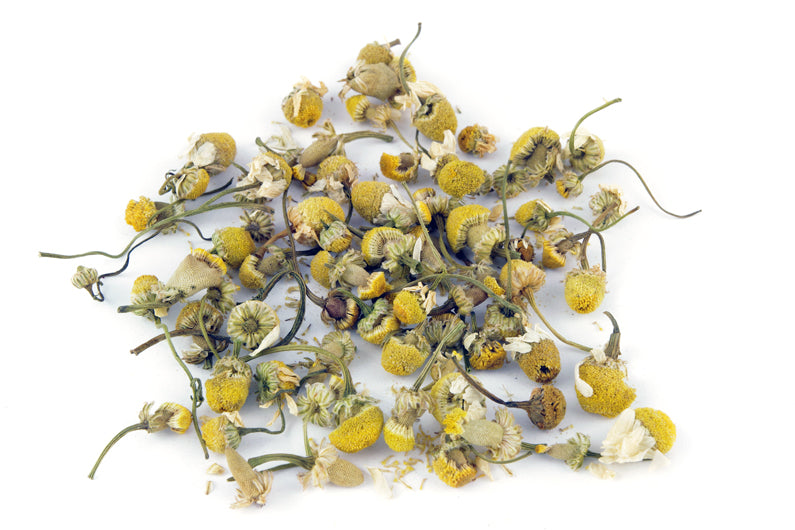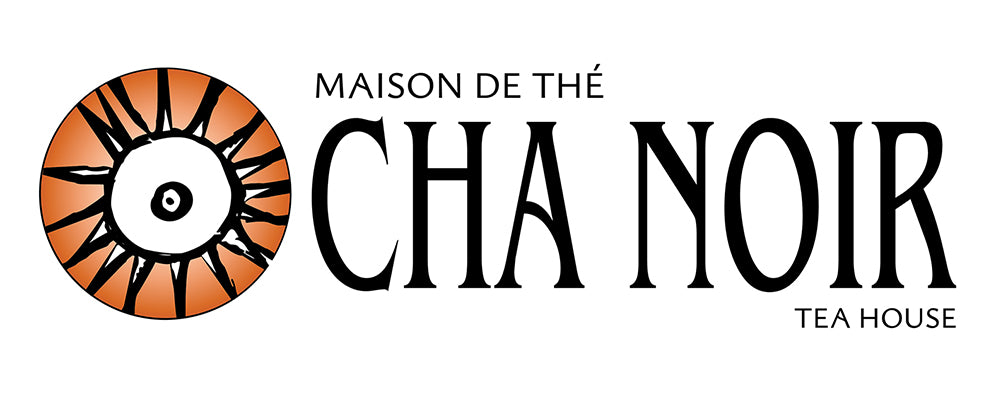
When I was living in Greece as a WWOOFer, the family I was staying with had an after dinner ritual. We drank a cup of chamomile tea to relax the body and soul. Every evening during my stay, to promote good digestion and a good night's sleep, I reveled in this comforting herbal tea which tasted floral with hints of sweet apple and honey. To this day, after an abundantly rich meal, I carry on their tradition and infuse myself a cup of this delectable plant.
Chamomile (Matricaria recutita L.) is recognized for its health benefits throughout the digestive system. Powerful antispasmodicand anti-inflammatory, it helps reduce gastric acidity, calms intestinal cramps and reduces bloating.It is an impressive ally for digesting various fats or copious meals as well as in the case of digestive fermentation. I especially enjoy serving chamomile tea with a hint of peppermint at the close of a holiday meal as the mixture engenders a feeling of lightness
As it promotes good digestion and especially reduces pains and tensions in the digestive system, chamomile assists and provokes relaxation. Although chamomile does not sedate, it is nevertheless chosen for its calming and relaxing qualities as its infusion gently soothes the nervous system.Chamomile can be used to alleviate mild insomnia and can be consummed, as an accompaniment to other anxiety-reducing methods, during stressful periods.Chamomile tea is an ideal addition to an especially challenging day wherein its taste and tranquil effects are well received.
As the action of chamomile on the nervous system is very gentle, it is an ideal alternative beverage for children over 6 months old. It effectively relieves infantile colic and other gastrointestinal problems. For restless or colic children, but also for children who experience insomnia, chamomile infusions can delicately soothe them. Chamomile tea can be considered an ideal nightmare repellent!
In preparing infusions, be sure to reduce the quantity of plant used by half for young children or to dilute one to two teaspoons of the infusion in a baby bottle for infants. Diluting a cup of chamomile infusion in the child’s bath water is another viable option as, in addition to benefitting from the plant’s medicinal properties, your child will smell delicately better!
Chamomile is a mild uterine tonic which can help relieve amenorrhea (an absence of menstruation) and has pain-relieving and anti-inflammatory properties which can help alleviate dysmenorrhea (painful periods).
As chamomile acts not only on the digestive system, but on the lower trunk pelvic region as well, it reduces inflammation, spasms, and uterine and intestinal tensions which are symptoms that tend to be amplified by menstruation. Chamomile tea is also recommended to help alleviate ovulation pains.
Chamomile’s soothing effects can, in addition to supporting the physical body, calm the mind and appease emotional bursts during stressful premenstrual periods or during menopausal experiances of severe moodiness, rage, depression, etc.Thus, taken as an infusion several times a day, chamomile will soothe pains experianced especially by women while simultaneously appeasing the nervous system which is often strained by the end of our menstrual cycle. Chamomile tea is so light and is prepared and consumed so readily that it has become my appointed menstrual pain remedy.
In being a mild uterine tonic, chamomile infusions are not recommended during pregnancy. However, consumed while breastfeeding, chamomile tea can soothe both mother and child, while helping with infantile colic cases. I would recommend chamomille to be enjoyed in the evening as opposed to the morning or afternoon. Chamomile could also interact negatively with anti-coagulant type medications.
Chamomile blends very well with lemon balm and peppermint for digestive purposes, with raspberry leaves for women's health concerns, as well as with linden to heighten its relaxation benefits.
Sources
https://www.passeportsante.net/fr/Solutions/PlantesSupplements/Fiche.aspx?doc=camomille_allemande_ps
https://www.passeportsante.net/fr/Maux/Problemes/Fiche.aspx?doc=symptomes-grossesse-pm-produits-naturels-et-herbes-medicinales
https://www.altheaprovence.com/camomille-matricaire-matricaria-recutita/
https://www.canada.ca/fr/sante-publique/services/grossesse/cafeine.html
Andrew Chevallier, Encyclopédie des Plantes Médicinales, Sélection Reader’s Digest

Jessica Balibrea, herborist
Jessica left France to settle in Quebec in 2018 where she finally realized her dream of working with medicinal plants. That same year, she began studies in herbalism and naturopathy, specializing in women's health. In early 2020, she reconnects with tea and joins the Cha Noir team to immerse herself even more in the herbal and medicinal world. Her time at Cha Noir remains marked by her passion and her knowledge of plants, her rigor, her sensitivity to others and her desire to always surpass herself. She now has the chance to finalize her studies and develop her activity as a therapist.
Translated from french by : Kayla Fanning

